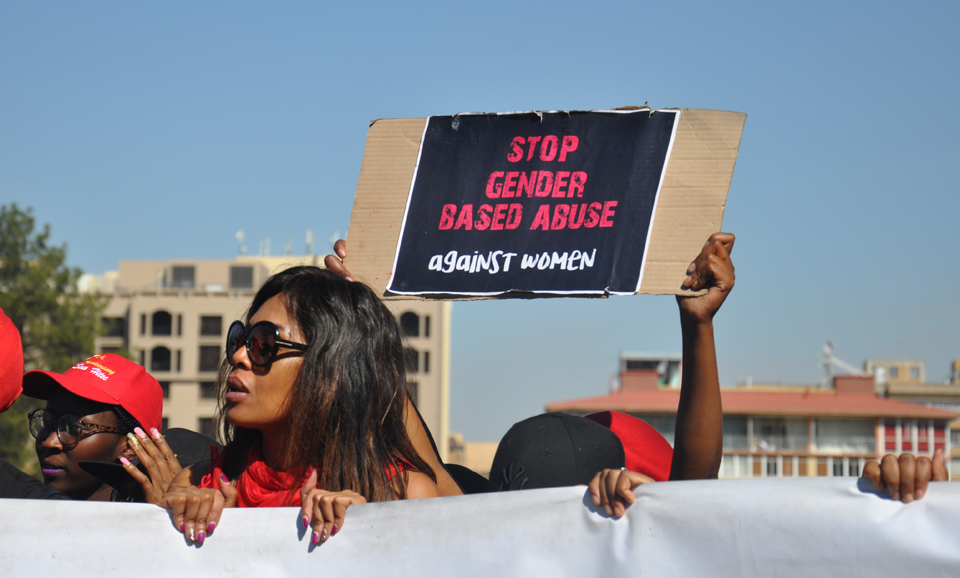
Tens of thousands of women took part in protest marches throughout South Africa August 1 as part of #TheTotalShutdown call to action against gender-based violence. August is Women’s Month in the country.
The month has routinely been a celebration of the role of women in the anti-apartheid struggle and the August 1956 Women’s March against racist laws restricting movement by the black majority population.
But women who joined #TheTotalShutdown protests say that the month now holds nothing positive for them, due to the scale of male violence against them in South Africa’s deeply patriarchal society.
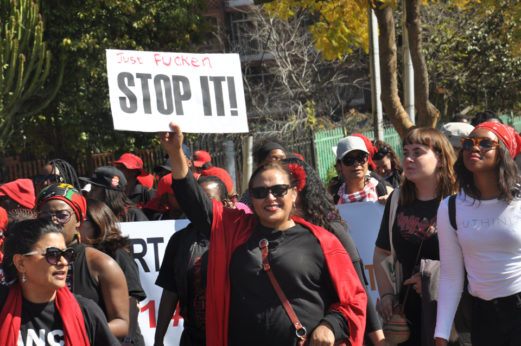
On average a woman is murdered every four hours in South Africa.
“As women, we have nothing to celebrate on Women’s Month”, said Nozi Samela during the #TheTotalShutdown march in Cape Town. “Being a woman in South Africa you wear fear as your second skin.”
Marches took place in many cities and towns in all the country’s nine provinces, as well as in nearby Lesotho and Botswana. The organizers said they were overwhelmed at the response to their call for women and gender non-conforming people to stay away from work for the day and join the protests.
The aim was to make an economic impact with the stay-away, to buy nothing and to boycott the economy of the country for the day.
Women taking part in the marches wore black and red, the colors of the #TheTotalShutdown collective, to symbolize mourning for lives lost to male violence and the blood of women shed in such violence. Away from the marches too women could be seen going about their day wearing red and black.
The #TheTotalShutdown call to action reads: “Every week, we receive multiple reports of women, children, and gender non-conforming people who have been brutally murdered, kidnapped, or abused, and there is no sense of urgency from our leaders to find ways in which society can tackle this violence. Women including the LGBTQIA+, children, and GNC people keep dying at the hands of men in South Africa, and something needs to be done.”
Trade unions, political parties and civil society organizations added their support to #TheTotalShutdown events. They respected the organisers’ demand that no men take part in the marches, making them a safer space for women to voice their demands for change.
South Africa is gripped by a pandemic of violence against women and children and constitutes a severe human rights crisis for the country. Violent crime is also widespread in the country, with an average of 49 murders taking place daily.
Between 25 and 40 percent of women have experienced intimate partner violence in their lives. According to one source, 40 percent of South African women will be raped in their lifetime, only one in four rapes are reported, and only 14 percent of perpetrators of rape are successfully prosecuted.
The statistics on gender based violence, and in particular rape, are notoriously inadequate. Invariably, the indications are that crimes against women more often than not go unreported and that the statisticss are only a pale reflection of the reality of gender based violence. In 2010 just under four percent of the estimated numbers of rapes that took place in the densely populated province of Gauteng, which contains the Johannesburg-Pretoria area, were reported to the police.
In June this year, Statistics South Africa reported reported that femicide is on the increase, with figures showing that the murder rate for women jumped by 117 percent between 2015 and 2016/17. The number of women who experienced sexual offences increased too, by a massive 53 percent.
A major problem with tackling violent abuse is that the police and courts do not respond to gender-based violence with anything like the trained professionalism and understanding needed.
Women are routinely denigrated for reporting rape or intimate partner violence or their complaints are brushed aside as a “domestic matter.” Women also generally lack protection against perpetrators, and continue to be terrorized by partners or former partners despite having protection orders against them.
These glaring inadequacies in the system coupled with increases in femicide and violence prompted #TheTotalShutdown to take to the streets.
In Pretoria and at the other march venues, the marchers presented officials with a detailed memorandum. This contains 24 demands, one for each year the South African government has failed to ensure the right of women to be free from violence since the establishment of democracy in 1994.
The demands include the development by the government of a national action plan to combat gender violence, development of criteria for screening appointments of individuals tasked with working on preventing gender based violence, police training to deal with complaints of abuse by women, revamping the work of the Ministry of Women in the Presidency, and establishing of a national, well-resourced hotline to enable survivors to request and receive support.
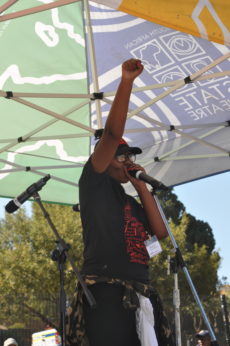
In Pretoria, the marchers converged on the Union Buildings, the seat of government, with the intention of handing over the memorandum to President Cyril Ramophosa.
He was out of town. Instead a minister was dispatched to receive the memorandum. Incensed, the marchers demanded that the President meet them, and there were scuffles with the police as anger at Ramaphosa’s absence grew. The police response was heavy-handed – apparently oblivious to the whole message of #TheTotalShutdown.
“Mr President, you not coming here says a lot about you,” #TheTotalShutdown organizer Loyiso Saliso told the cheering crowd of several thousand marchers gathered on the lawns of the Union Buildings. “Come 2019 elections we will remember all that happened in planning this shutdown. We are keeping receipts.”
Eventually, at night, the president returned to Pretoria and did meet with the march organizers. Together with a large core of marchers, they had refused to move until Ramaphosa received the memorandum. He later tweeted his support for the women and, referring to the police violence earlier in the day, added: “We are going to deal with the police officers severely.”
For the marchers and supporters of the movement the work now is to ensure their demands are realized and that change begins to happen.



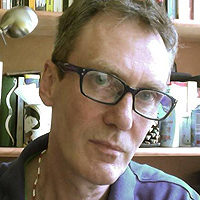

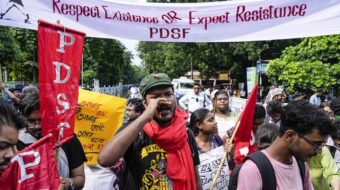
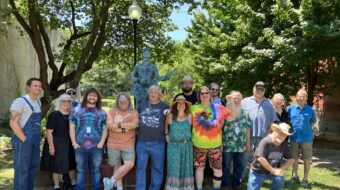





Comments